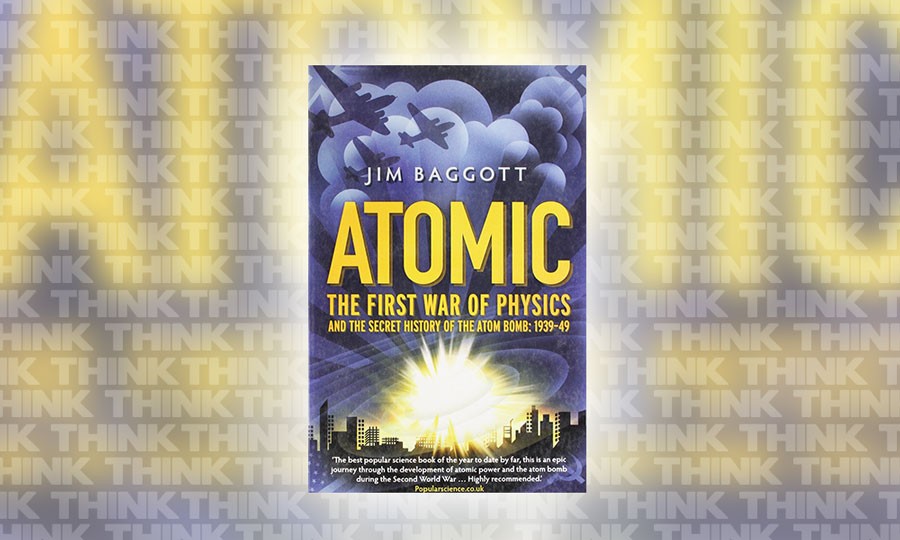To date atomic war still threatens to wipe out humanity. That threat hangs at the command of every atomic state, an ever-growing number. The argument to restrain other nations is repeatedly controversial, being perceived as oppressive, unfair foreign policy. Every aspiring country wants The Bomb.
Jim Baggott’s account starts from 1939 when Otto Frisch and Lise Meitner scribbled their calculations for nuclear fission on a tree trunk in an idyllic village, to be closely followed by the Nazi, British, Russian, and American bomb building war efforts. The book ends with an extended epilogue zipping through the cold war escalation of atomic armament that has cost the world tens of trillions of dollars, sterling, roubles, and other currencies, all to build warheads that will hopefully remain unused. Baggott leaves unsaid the obvious benefit to humanity if that money was otherwise used.
The book is richly detailed, its narrative replete with scientific and political personalities. The well-researched book uncovers many misconceptions about atomic history, from German scientists actively building or resisting the construction of the atomic bomb (neither is true), to America dropping the bomb to save lives (Japan had already discussed surrender, they just did not want the word ‘unconditional’ used). The book sets the record straight for a number of topics.
The Manhattan Project at Los Alamos was the military research project that led to the atomic bomb. Concentration camp-like secrecy did not prevent Russian spies completely infiltrating the institution. The Russians learnt about the bomb before it was used. Spies included scientists with communist ideals and others who thought it insane that America would hold a nuclear monopoly.
Such infiltration led to the paranoia of the Carter era in the early 1950s. Jimmy Carter started a campaign against perceived communists, especially nuclear physicists, which ended up in J. Robert Oppenheimer (the father of the bomb) being stopped from further consultation and Felix Bloch (a ground breaking quantum physicist) to be exiled to Brazil. Cold War America was a place of fear.
Scientists’ reputation suffered. The bomb placed scientists on the same moral ground as politicians and other human beings. They were capable of being pushed to develop ‘evil’ weapons should they be under an oppressive regime or under the perceived threat of a greater enemy. These scientists first lost credibility then were hounded as spies because of a few defectors.
America was the other big loser. As the only country to ever use the atomic bomb, it lost credibility as the world’s policeman and peacemaker. All future political manoeuvring would be against this dark shadow. Atomic is a great, well-researched must read for anyone interested in atomic science and the story behind how the world fell in love with the most horrible weapon ever devised.






Comments are closed for this article!